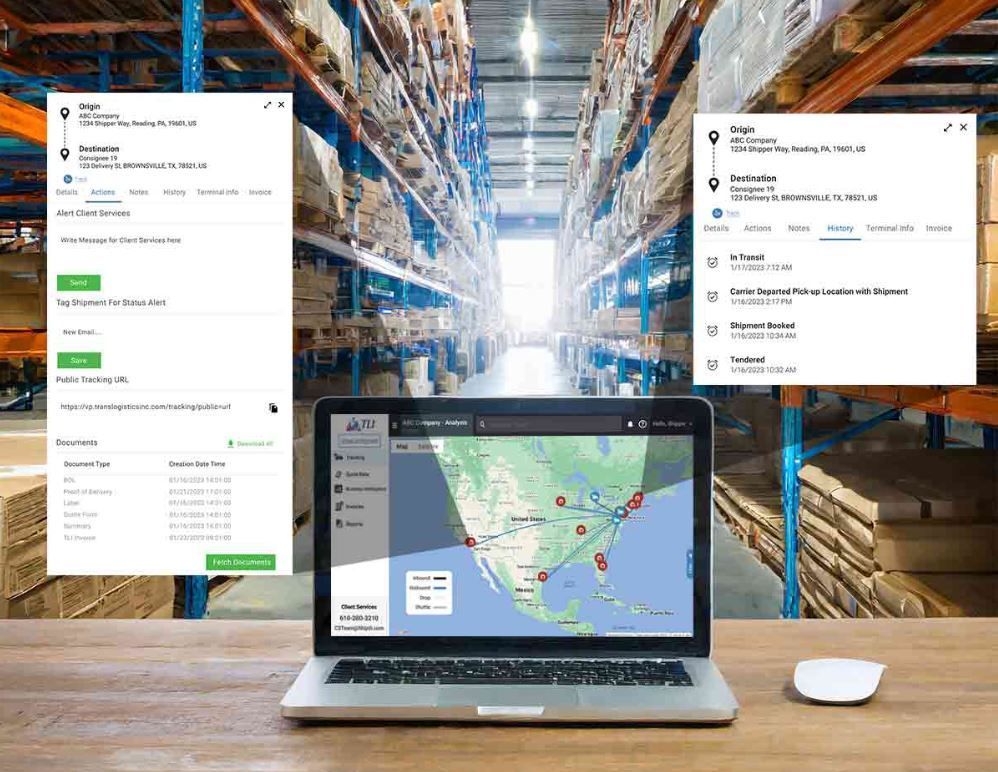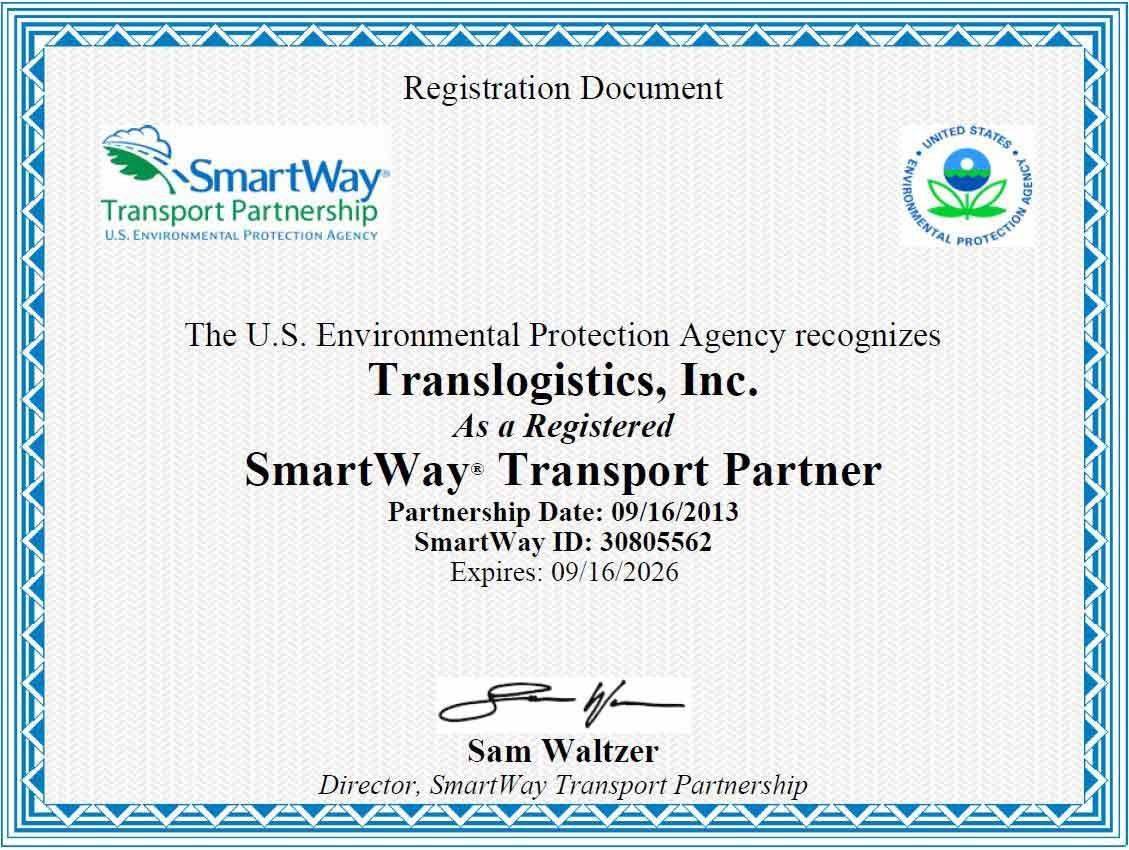What is a Transportation Management System?
A Transportation Management System (TMS) is a specialized logistics software platform that focuses specifically on shipping, executing, and optimizing the transportation operations involved in moving goods through a supply chain. It acts as an intermediary system between an organization's enterprise resource planning (ERP) or order processing systems and its warehouse/distribution operations.
Transportation Management System
The core functions of a TMS include:
- Dynamic routing and load planning to determine optimal shipment carrier selection and consolidation opportunities, such as building a partial FTL.
- Carrier selection and rate management to find the most suitable and cost-effective transportation providers
- Shipment tracking to provide real-time tracking visibility into the location and status of freight
- Documentation management for areas like bills of lading, proof of delivery, freight invoices, and compliance requirements
- Rating and freight bill audit to forecast transportation costs based on historical data and audit freight bills against contracted rates
By leveraging historical shipment data, a TMS enables businesses to streamline transportation processes, reduce freight costs, improve on-time delivery performance by holding vendors accountable, and gain greater transparency into their logistics operations across multiple modes like
truck,
rail,
air, and
ocean.

A TMS is a key component of broader supply chain management systems. It integrates with ERP, order management, and warehouse management systems to provide a unified view of the flow of goods from initial order through final delivery. This integration capability allows the TMS to automate tasks like tendering shipments for pickup, consolidating carrier invoices needing disputes, data and analytics based on customer orders related freight charges.
Who uses a transportation management system?

The primary users of TMS solutions include manufacturers, distributors, retailers, e-commerce companies, and third-party logistics providers (3PLs) that need to effectively manage inbound freight from suppliers and outbound shipments to customers. An advanced TMS system equipped with capabilities like dynamic routing guides, freight audit and payment, proof of delivery tracking, and shipping data analytics dashboards has become critical for enhancing logistics agility and reducing transportation costs in shippers supply chain environments.
Why do shippers use TLI's TMS System?
Here are three key benefits that shippers gain by using a Transportation Management System (TMS), highlighting its scalability, data control and interpretation abilities, and the ability to access additional vendors and integrations through a multimodal provider like TLI:
- Scalability to Support Growth: A robust TMS provides shippers with the ability to seamlessly scale their transportation operations as their business grows. The system can handle increasing shipment volumes, expand to new geographic regions, and adapt to evolving customer demands without hindering efficiency. This scalability ensures that the TMS remains a strategic asset, capable of supporting the shipper's long-term growth objectives.
- Enhanced Data Control and Interpretation: A TMS acts as a centralized repository for all transportation-related data, including carrier rates, shipment tracking information, and performance metrics. This consolidated view of data empowers shippers to gain greater control and visibility over their supply chain operations. Additionally, the system's advanced analytics capabilities enable shippers to transform raw data into actionable insights, facilitating better-informed decision-making and continuous process improvements.
- Access to Expanded Vendor Network and Integrations: By partnering with a multimodal TMS provider like TLI, shippers can tap into a vast network of pre-integrated carriers and vendors across multiple transportation modes (e.g., FTL truckloads, less-than-truckload, intermodal, air, and ocean). This comprehensive vendor network enables shippers to easily compare rates, service levels, and performance metrics across a wide range of options, ensuring they can select the most suitable and cost-effective solutions for their specific shipping needs. Furthermore, TLI's TMS platform offers integrations with other critical supply chain systems, such as Enterprise Resource Planning (ERP) and Warehouse Management Systems (WMS), facilitating a streamlined flow of information and improved operational efficiency.
By leveraging a TMS like TLI's, shippers can benefit from the scalability required to support business growth, gain greater control and insights from their transportation data, and access an extensive network of pre-integrated vendors and supply chain solutions. This powerful combination of capabilities empowers shippers to optimize their logistics operations, reduce costs, and enhance customer satisfaction.
Why do other third-party logistics providers use TLI's TMS system?
By choosing to partner with TLI's TMS solution, 3PLs can benefit from cost savings through advantageous pricing, diversify their service offerings by introducing new transportation modes, and gain the scalability and support required to expand their businesses into new markets and win sought-after shipper accounts.
- Competitively Advantageous Pricing: TLI's TMS solution offers highly competitive pricing compared to other TMS providers in the market. By leveraging TLI's system, 3PLs can benefit from cost savings, which can be passed on to their shipper customers or used to improve profit margins. This pricing advantage can help 3PLs gain a competitive edge and attract more business.
- Access to Additional Transportation Modes: TLI's TMS supports a comprehensive range of transportation modes, including truckload, less-than-truckload, intermodal, air, and ocean freight. For 3PLs currently offering a limited set of modes, partnering with TLI presents an opportunity to expand their service offerings seamlessly. By introducing new modes through TLI's TMS, 3PLs can meet the diverse shipping needs of their customers, enhancing customer satisfaction and potentially capturing new revenue streams.
- Scalability and Expansion into New Markets: As a leading multimodal TMS provider, TLI offers the scalability and support required for 3PLs to grow their businesses and expand into new markets effectively. With TLI's extensive carrier networks and established relationships, 3PLs can leverage the TMS to win and support new shipper customers in regions or modes where they may not have previously had a strong presence or carrier connections. This scalability empowers 3PLs to pursue growth opportunities with confidence, knowing that TLI's TMS can accommodate their evolving needs and support their expansion plans.
TLI's robust cloud-based TMS platform, coupled with its industry expertise and carrier networks, positions it as a valuable partner for 3PLs seeking to enhance their competitiveness and drive growth for their
3PL Brokerage business.
How does the Transportation Management System ERP Integration work?
Our TMS integrates seamlessly with your existing ERP system to provide a cohesive and streamlined flow of information across the entire supply chain process. The ERP system acts as the central hub, handling core business functions such as accounting, invoicing, order management, and inventory management. When a customer order is placed, the ERP system processes the order details and passes the relevant shipment information to our TMS.
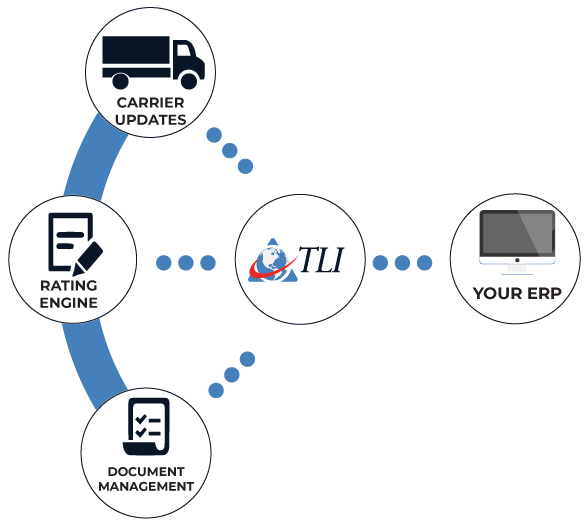
This shipment data includes critical details like customer name, address, item information, and any special shipping requirements. Armed with this information, our TMS can intelligently plan and execute the shipment, auto-determine the freight class, the CWT, and the PCF to rate the data most favorable to the shipper, leveraging its advanced routing, carrier selection, and optimization capabilities.
In parallel, the WMS manages the physical fulfillment, shipping, and receiving processes within the warehouse or distribution center. It tracks inventory levels, picks and packs orders for shipment, and updates the ERP system with real-time inventory data to ensure accuracy and synchronization.
Our TMS seamlessly integrates with the WMS, enabling efficient communication and coordination of warehouse activities related to outbound shipments. This includes tasks such as staging orders for pickup, tendering the load, generating necessary bill of lading documentation, selecting freight class and facilitating the smooth handoff of shipments to carriers.
Once the shipment is in transit, our TMS provides real-time visibility and tracking updates through carrier API integrations and MacroPoint technology, which can be shared back with the ERP system and other relevant systems like Customer Relationship Management (CRM) platforms. This empowers customer-facing teams with up-to-date shipment status information to provide better customer service and proactive communication.
Upon delivery, our TMS captures proof of delivery and other critical shipment data, which is then communicated back to the ERP system for accurate invoicing, accounting, and order closure processes.
By acting as a central hub for transportation management and seamlessly integrating with ERP and WMS systems, our TMS streamlines the entire order-to-delivery process, enhancing operational efficiency, visibility, and customer satisfaction across the supply chain.
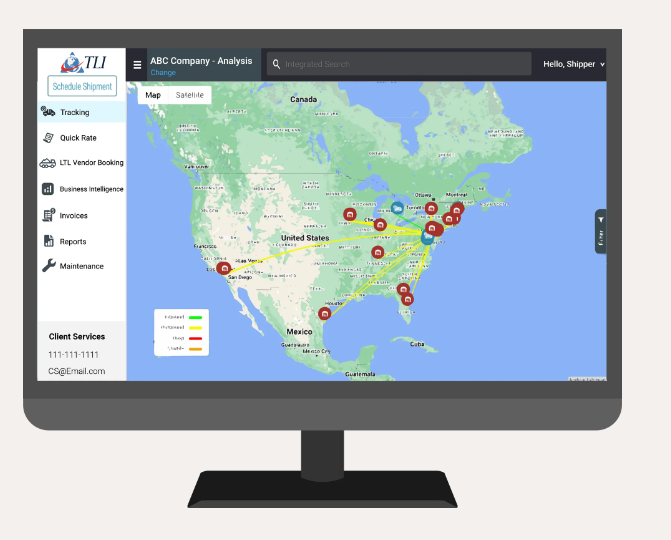
Why should I use a TMS?
A robust Transportation Management System has become an indispensable tool for any company responsible for transporting substantial volumes of goods or managing logistics service providers. The complexities inherent in the multitude of transportation modes, and the ever-evolving regulatory landscape make it nearly impossible to effectively manage transportation operations without the aid of sophisticated computerized systems.
The automation capabilities offered by a TMS are crucial for ensuring that transportation services are secured at the most optimal costs, without compromising quality or efficiency. Extensive industry experience has demonstrated that a well-implemented TMS can significantly reduce transportation costs through effective management and optimization strategies.
However, the benefits of a TMS extend beyond cost savings. Perhaps more importantly, a TMS plays a pivotal role in enhancing the overall customer experience. By seamlessly integrating with Enterprise Resource Planning (ERP) and Customer Relationship Management (CRM) systems, a TMS can provide real-time shipment status updates and visibility to customers. This level of transparency and proactive communication fosters a heightened sense of trust and satisfaction among customers, ultimately strengthening long-term business relationships. As visibility to freight at all times, is the expected norm now.
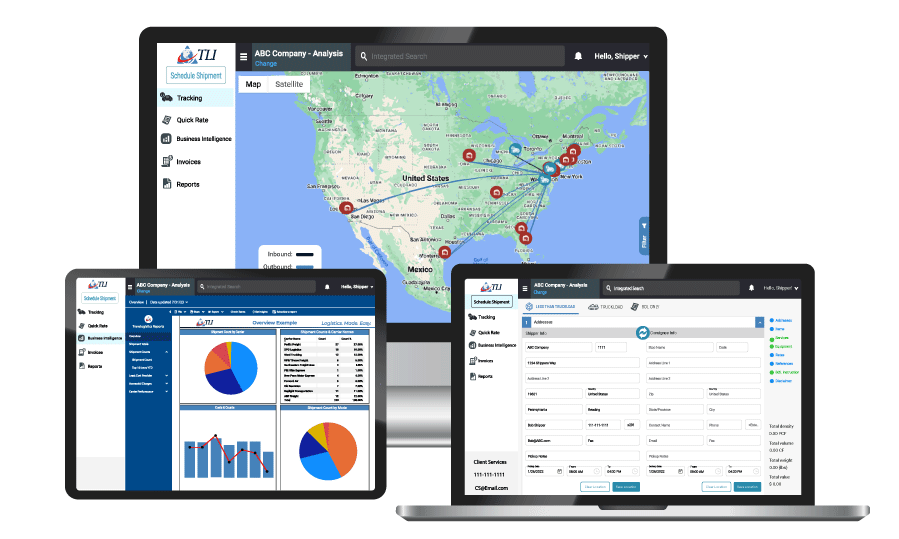
How can I deploy a TMS System?
To deploy a Transportation Management System (TMS), you'll want to partner with an experienced and reliable TMS provider like TLI. Here's how you can get started:
The first step is to sign up with TLI by visiting TLI's sign up form.
Our team will guide you through the onboarding process and gather the necessary information to configure the TMS according to your specific business requirements.
During the onboarding phase, TLI will offer comprehensive training and support to ensure a smooth transition to the new system. Our experts will provide hands-on training sessions to familiarize your team with the TMS's features, functionalities, and best practices for optimal utilization. You will be assigned an representative who will remain assigned to your account, and be familiar with your expectations in the scope of work.
To streamline the setup process, TLI can upload your existing address list directly into the TMS if you have it in a spreadsheet format. This will save you valuable time and effort, allowing you to hit the ground running with your established customer and vendor data already integrated into the system.
Additionally, TLI can analyze your historical shipping data to gain insights into your unique shipper profile and transportation patterns. Based on this analysis, we can assign the most competitive and suitable carriers from our vast network, ensuring that you benefit from optimal rates and services right from the start. With TLI's TMS, you'll have access to a comprehensive suite of features, including route optimization, carrier selection, real-time tracking, and robust reporting and analytics capabilities. Our system supports multiple transportation modes, enabling you to manage and streamline your logistics operations across various modes, including truckload, less-than-truckload, intermodal, air, and ocean freight.
Throughout the deployment process and beyond, TLI's dedicated support team will be available to address any questions or concerns, ensuring a seamless transition and ongoing assistance as your business grows and evolves.
By partnering with TLI and leveraging our powerful TMS solution, you'll gain a competitive edge in the transportation industry, enabling you to optimize your supply chain operations, reduce costs, and deliver exceptional service to your customers.
TLI Insights
Get the latest logistics insights and tips from TLI's award-winning team. Stay ahead in transportation planning.
Questions? Email us at marketing@shiptli.com

